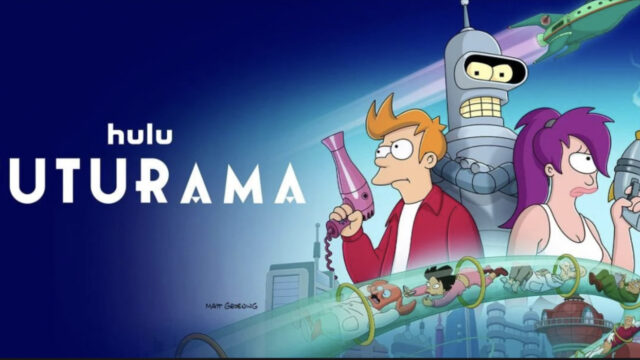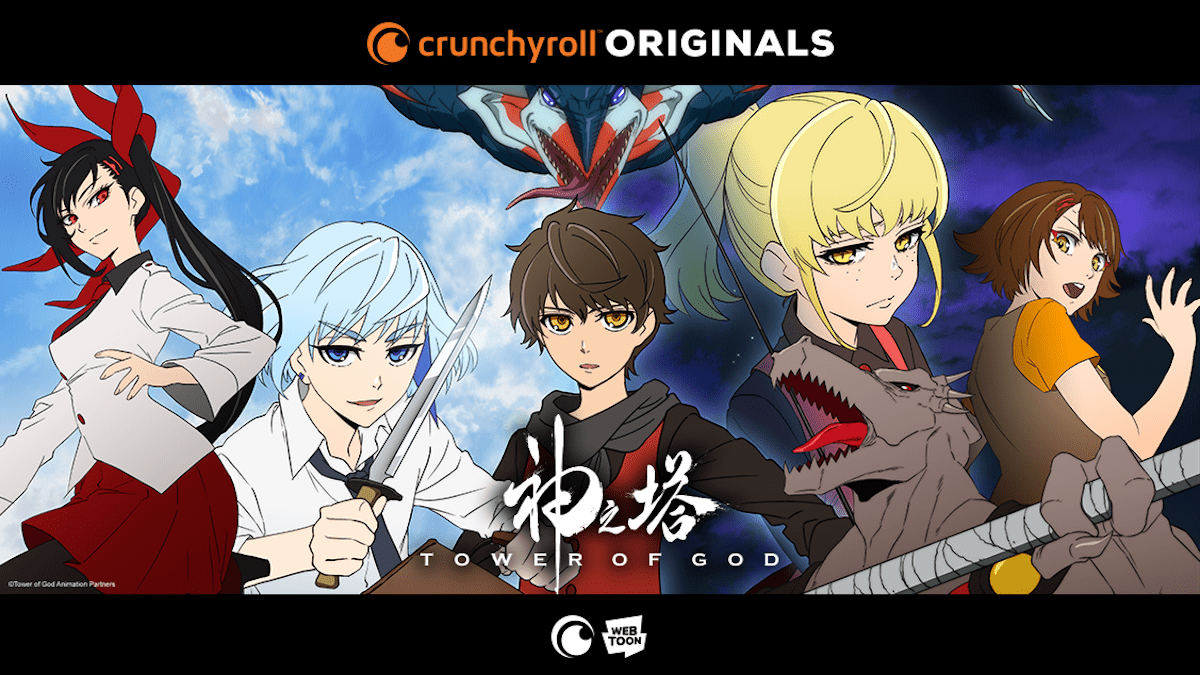Season Review: Resident Evil: Infinite Darkness Season One
Overview:
Resident Evil: Infinite Darkness looks at an international disaster that spreads at an alarming speed and zombies are only the tip of the iceberg. Frequent zombie aficionados, Claire Redfield and Leon S. Kennedy, reunite after their time together in Raccoon City to protect the United States from an international incident. What begins as an alarming affront at the White House begins to present all-too-familiar red flags and it’s clear that this is more than some terrorist attack. Claire and Leon end up in a tense arrangement where deadly bio-weapons end up on the precipice of exposure and Armageddon brews under everyone’s noses.
Our Take:
Some franchises struggle to produce material, but there is absolutely no lack of Resident Evil content. That being said, it’s always a pleasant surprise when more chapters to the Resident Evil saga arrive and the universe gets explored from a new angle, whether it’s through video games, live-action, or animation. However, Infinite Darkness might be one of the biggest misses of the entire series, including forgettable installments like Resident Evil Gaiden or Resident Evil Survivor. There’s a hint of promise in this bizarre endeavor, but Resident Evil: Infinite Darkness amounts to a strange enigma that wants to be many things, but a Resident Evil installment seems to be at the bottom of the list.
Infinite Darkness is set in 2006, somewhere after the events of Resident Evil 4, but the series never relies on the specifics of the games or tries to shoehorn this extra story between canonical events from the series. There are absolutely nods to the larger Resident Evil universe that will make longtime fans smirk, but they’re far from essential in order to understand or enjoy Infinite Darkness. For the most part it amounts to a lot of gratuitous, “Raccoon City was only the beginning” non-specific shout-outs. On this level, it’s shocking how much Infinite Darkness wants to function like an extended episode of 24 or Olympus Has Fallen sequel. It just so happens to involve a bunch of professionals whose expertise is zombies, so it stands to reason that zombies are a major part of this. Infinite Darkness evokes more of the vibe of an action TV series or flashy B-movie than an intimate, moody horror show.
This mish-mash of ideas is at its most interesting when Infinite Darkness juxtaposes disgusting acts of war and attrition with the ravenous acts of zombies and at times there are scenes where it takes a while to ascertain which of the two is actually playing out. It’s a fascinating parallel to address, but one that does get heavy-handed. Subtlety is not Infinite Darkness’ specialty and the series is very on-the-nose with its approach to anything. What’s unfortunate is that a Resident Evil video game that’s set in the White House could actually be a fun change of pace, but in this series the setting only has diminishing returns. The setting feels like it belongs in another genre and not an expansion of the Resident Evil universe.
The story’s unusual mission statement is perhaps how Infinite Darkness intends to differentiate itself from the slew of other CG-animated Resident Evil endeavors that exist. This is a legitimate concern since there are now enough CG Resident Evil off-shoots that it’s easy to mix them up and anything new in that arena should make the effort to be distinct in some way. Infinite Darkness looks beautiful and there’s an impressive likeness to the characters and a level of artistry and detail to the zombies and bio-weapons that make them stand out rather than feel like bland takes on past threats.
The problem is that despite the pristine quality of the CG animation in Infinite Darkness, there’s still just a lot more to appreciate in an animated series that looks animated rather than a simulacrum of real people or an extended video game cutscene. Audiences might be more comfortable with this style, but a Resident Evil animated series that’s in the style of Castlevania or Blood of Zeus would easily get more people talking and getting extremely vocal. It’s just a shame that this slick CG style is now what sells and has become the dominant look for Resident Evil’s “animated” world.
Infinite Darkness tells a unique story that does feel different for the long-running zombie franchise as well as unexpectedly timely, in a way that feels beyond what the series had even intended, but it’s still not the facelift that Resident Evil needs. Infinite Darkness ultimately still feels superfluous, especially with a lot more Resident Evil content on the way that’s actually making the horror and the action the priorities. A more traditionally animated take on the series, or a standard 2D anime would have so much more of a voice than what’s present here.
It’s still exciting to get more adventures with Resident Evil’s iconic Claire Redfield and Leon Kennedy, and each episode takes place in some inventive and creative environment, like the White House or a submarine. There’s also a global scope in Infinite Darkness that takes these characters all across the world, even if it’s contained to four brief episodes. Ultimately what holds back Infinite Darkness is that so many other disposable CG Resident Evil content exists that it’s easy to automatically lump this in with them and assume the worst. There is something original happening here, but it’s not enough to facilitate a second dose of Infinite Darkness, even if it had a different art style.
It’s also important to make clear that Infinite Darkness technically stars Claire and Leon, but really, the leads in this could be anyone at all and they feel more akin to protagonists from some random political thriller or socially minded war drama. Some might argue that the protagonists in Resident Evil aren’t extremely layered, especially earlier in the franchise, but they do in fact have depth and there’s enough to them to latch onto. Infinite Darkness feels like Claire could be Kate Mara’s Zoe Barnes from House of Cards and Leon is Jack Bauer on an off-season of 24.
It’s a disservice to the series and almost makes it feel propagandist to some extent, like it wants to use Resident Evil as a popular mouthpiece for something bigger. Yes, there are zombies and a Tyrant, but episodes are a lot more concerned with social justice, PTSD, and the attritions of war. This amounts to a perplexing four-episode series where the zombie material and the brief brushes with horror are by far the strongest material, but they’re far between and diluted by everything else. There’s a setpiece with a horde of rats that’s genuinely great and horrifying and another moment where Claire ventures into an abandoned shack of a house that feels like it could be straight out of Resident Evil 7. However, it’s bizarre how quickly the series rushes away from these powerful moments.
Perhaps the best example of this is the “boss” of Infinite Darkness, the major Tyrant that Leon, Claire, and company inevitably need to face, like in any of the many Resident Evil video games. There’s a decent design for this bio-weapon (although it’s basically just Swamp Thing), but Infinite Darkness rushes through any sort of satisfying battle against this monster. It’s instead more of a psychological problem that’s another extension of war, which thematically fits with Infinite Darkness, but allows the real horror to literally hide behind a barrier for most of the series.
In the end, Resident Evil: Infinite Darkness feels like a bizarre hodgepodge of sensibilities that’s like if Aaron Sorkin did a final polish on the script for The Thing and all of the chilling body horror transformations were undercut with self-righteous monologues or unprompted Latin lessons on the root of fear. It’s a shame because there are some decent vocal performances throughout Infinite Darkness, albeit nothing revelatory that demands that it become the definitive take on either of these characters. There’s a strong enough foundation to Infinite Darkness that just sputters out and wastes its resources.
At only four episodes that are under a half-hour each, Infinite Darkness feels more like a direct-to-DVD movie that’s been split up into pieces than a proper season of a show, or even a “limited mini-series.” Infinite Darkness already faces an uphill battle to prove itself, but the fact that there’s so little of it makes it feel even more disposable and easy to forget, especially with more unrelated Resident Evil projects on the way on Netflix.
All of this may come across as overly harsh, but Resident Evil: Infinite Darkness isn’t just uninteresting and bad, but it’s disgusting and feels irresponsible on some levels. Not because Infinite Darkness is supposed to be some covert piece of loaded commentary–and that’s not what I believe this is–but it’s just so antithetical to what Resident Evil is about and a direction that’s so in opposition to everything else. So in that sense, it feels irresponsible to have an exciting Resident Evil vehicle of this nature that can tell such a global story and then use it to shout about war profiteering, government conspiracies, and the true costs of war.
It’s hard to imagine Infinite Darkness as anyone’s favorite piece of Resident Evil media or the type of project that results in someone checking out the video games or film series to experience more of this world. Infinite Darkness might not have been able to go into production if it were just an original conspiracy theory thriller with minor supernatural elements, but it’d likely result in an all-around better series.
Resident Evil: Infinite Darkness doesn’t feel like it’s for those that are fans of the video game series, the zombie genre, or even the heavy-handed political thrillers that it seems to idolize. Hopefully Infinite Darkness doesn’t follow the example of its undead bio-weapons and it will stay silent without a noisy resurrection.
Resident Evil: Infinite Darkness hits Netflix on July 8th
























Do we know if Hulu will be the only entity to have the dub, or if it will be on other platforms, too? The show in general is definitely going to be on multiple platforms.